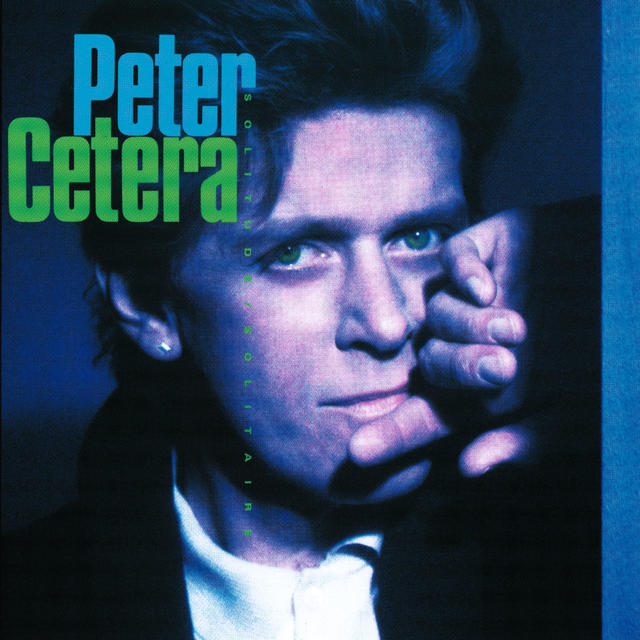The One After the Big One: Peter Cetera, SOLITUDE/SOLITAIRE

The overwhelming success of 1984’s CHICAGO 17 shook Chicago (the band, not the city) to its core. It was the biggest-selling record of their then-17-year career, racking up a fistful of hit singles (including the immortal “You’re the Inspiration”) and making the band unlikely MTV stars in the process. Bassist and singer Peter Cetera wanted to go solo and did, bolting from the group after the tour supporting the record, taking his familiar face and voice with him. Chicago kept David Foster in the producer’s chair (at least for one more record), replaced Cetera, logged several more hits, and re-established themselves as the touring juggernaut they remain to this day.
Cetera’s first move was a good one (co-writing the Number One hit “Glory of Love” with Foster) and his second wasn’t bad, either – getting Grammy-winning producer and arranger Michael Omartian to produce his first post-Chicago solo record, 1986’s SOLITUDE/SOLITAIRE.
If you want a prime example of what Top 40 hits of the mid-’80s sounded like, just cue up this album. Omartian’s production has it all – the “Danger Zone” keyboard and synth bass that runs through “Big Mistake,” the spooky synths and offbeat percussion in the title track, the glossy/slick (or is it slick/glossy?) drums in “Daddy’s Girl,” and the general polish throughout. Imagine the sonic elements of the TOP GUN soundtrack, Peter Gabriel’s SO and Steve Winwood’s BACK IN THE HIGH LIFE (all of which came out the same year), smushed together and stretched back into a single record, and you have an idea of the overall sound of SOLITUDE/SOLITAIRE. Omartian did this kind of thing better than just about anybody else at the time, and he leaves no synthesizer unturned here.
Layer over that one of the most recognizable voices of the ‘70s and ‘80s, and you’re cooking with fire. Cetera imbues “Big Mistake” with more than a little dramatic flair, holds together the oddly structured “Wake Up to Love,” and climbs to the heavens on “Only Love Knows Why” (the most CHICAGO 17-like song on the record), all with the pliable power of his voice. On the latter tune and the aforementioned “Glory of Love,” he sounds like he’s taking on the world, armed merely with that voice, yet he still leaves enough space on “The Next Time I Fall” for someone else (in this case, Amy Grant) to shine. The result there was another Number One hit.
SOLITUDE/SOLITAIRE established Cetera as an ‘80s solo artist completely divorced from his old band, and completely dialed into the sound that hits were made of in that period. Time to give it another listen – it’s a nostalgic trip worth taking once again.
For more information, click the buttons below:

